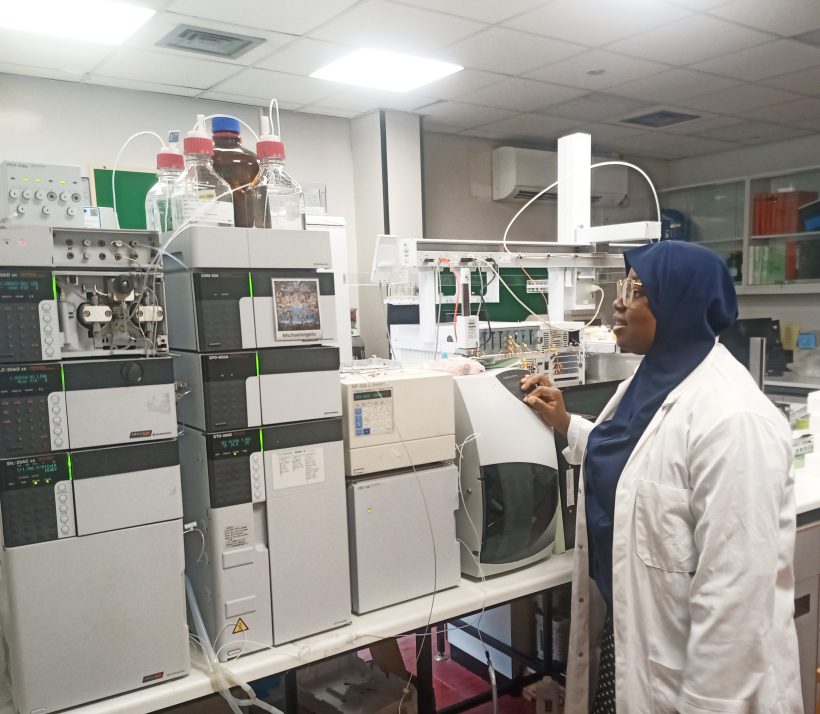
Dr. Bolarinwa Islamiyat Folashade, a 2020 One Planet Laureate Candidate and a food scientist at Ladoke Akintola University of Technology (LAUTECH), Nigeria, has won two research grants from Innovative UK to support her research on developing solutions for post-harvest management.
As a little girl growing up in rural Ibadan, Oyo State, Nigeria, Bolarinwa was often frustrated seeing half of her father’s farm produce waste due to a lack of preservation facilities. Her father grew cassava, vegetables, and fruits, which were strenuous to process from harvest to market. Close to four decades later, the situation has still not improved much for smallholder farmers.
“I see lots of rotten fruits and vegetables on dumping grounds. This makes my heart bleed knowing the efforts that farmers put into cultivating these crops and how food insecure my country is,” she explains.
Bolarinwa’s first grant of £152,715 is supporting a project on “Development of Sustainable Edible Coatings for Perishable Tropical Food Crops Preservation: Option for reduction of post-harvest losses through the value chain.” The project aims to address the high post-harvest losses that have long plagued smallholder farmers in Nigeria, jeopardizing food security and economic stability.
Through the project, she hopes to develop sustainable biopolymer coatings that act as alternatives to chemical preservatives for extending the shelf life of perishable crops. The coatings will reduce post-harvest loss, boost productivity, and increase profitability for smallholder farmers.
This year, Nigeria’s Federal government disclosed that the country’s total economic cost of post-harvest losses stands at N3.5 trillion annually in the agricultural sector, with post-harvest losses in fruits and vegetables going as high as 60%. Bolarinwa is working to change that narrative. Her innovative work promises to bring transformative changes in how Nigeria and potentially the world approach post-harvest loss challenges.
“My aim is to provide an affordable and high-quality source of plant-based protein, reducing protein-energy malnutrition and its associated health issues,” she declared.
Her second grant of £29,726 supports her work on increasing the availability of high-protein foods and reducing protein-energy malnutrition, a project titled “Development of Sustainable High Protein Food from Duckweed Plant – A Solution to Protein-Energy Malnutrition in Nigeria.”
Traditionally, animal proteins have been the primary source of nutrition, but their increasing cost and environmental impact necessitate a shift towards plant-based alternatives. In a country where protein-energy malnutrition is a persistent problem, Bolarinwa’s project offers a glimmer of hope. She is processing duckweed into a ready-to-use powder, which will be fortified into staple foods like bread and snacks, such as cookies.
Bolarinwa’s projects prioritize gender equality and inclusivity. Women comprise a large proportion of the agricultural labor force. Yet, their contribution to food security is not yet fully recognized, and how they benefit from food systems remains unequal and under-researched. Bolarinwa asserts that this reality is particularly true for Nigerian women smallholder farmers producing fruits and vegetables.
“Cultivation of fruits and vegetables is a type of ‘nutrition-sensitive agriculture’ that can improve micronutrient intake in rural households. However, post-harvest losses of fruits and vegetables are very high, which is likely to affect women’s income from markets negatively,” says Bolarinwa.
Recognizing that women play a pivotal role in agriculture, both projects aim to empower women farmers through training, education, and participation in every research stage. She is committed to addressing the social, economic, and environmental factors to ensure long-term sustainability and a positive impact. By extending the shelf life of fresh produce, these initiatives contribute to economic growth, reduced waste, improved health, and reduced chemical usage.
Bolarinwa’s dedication to addressing complex agricultural challenges with innovative solutions is a testament to the power of research and collaboration. With her projects, she is transforming lives and setting new standards for sustainable agriculture and gender-responsive research, which promises to transcend national borders.
Bolarinwa highlights that thanks to initiatives like the One Planet Fellowship, her work is gaining the recognition it deserves. The One Planet Fellowship Laureate Candidates are supported to enhance their leadership and research skills and to deploy a gender lens to analyze the potential of their research through a series of tailored training. The Fellowship brings together an intergenerational network of scientists from across Africa and Europe, strengthens the leadership skills of emerging climate scientists from both continents and contributes towards building a robust pipeline of climate science leaders.
“The Fellowship, for the first time, allowed me to engage in a gender-responsive project during the individual project on “Community-Based Vulnerability Assessment of Gender groups to Climate Change.” The experience motivated me to develop a solid gender equality statement for the two grants,” she concluded.
